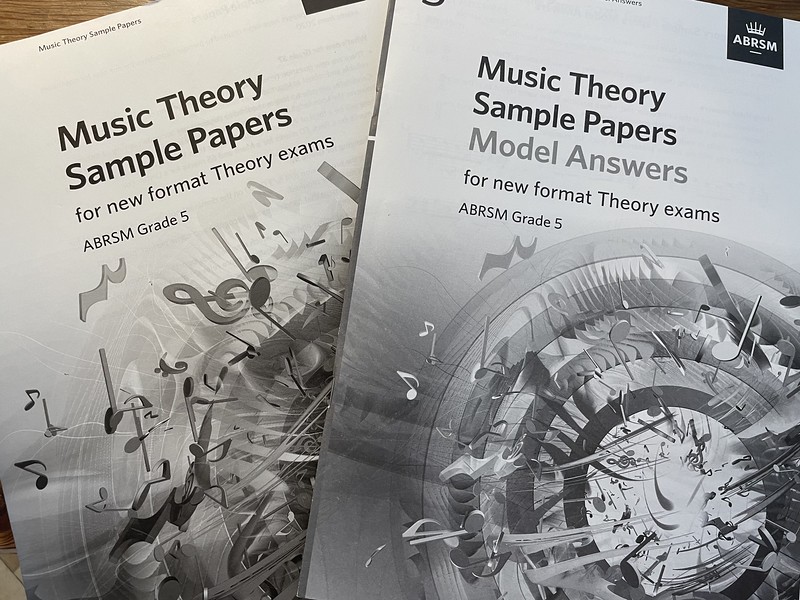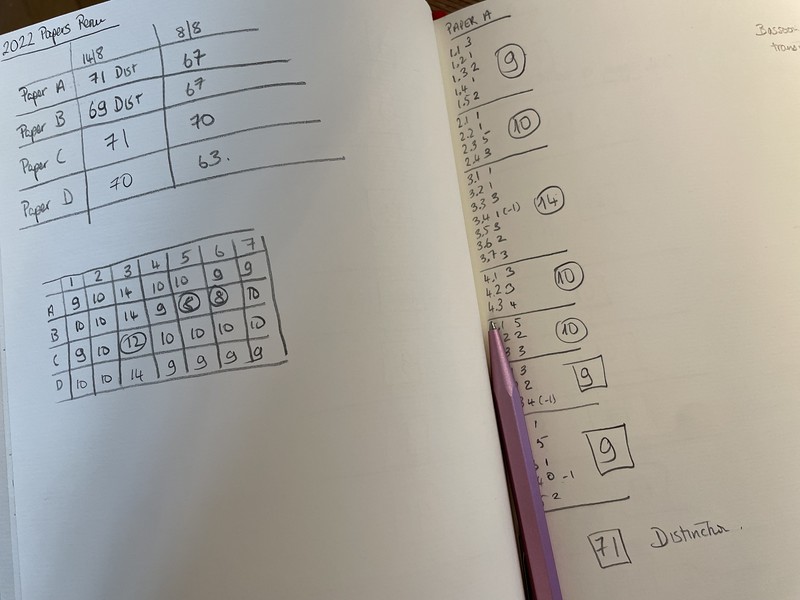Every once in a while, someone pops into r/piano on reddit and asks, often plaintively, where can they find music to play. Where can they find songs.
I struggle with this. There is Google. There are sheet music shops. There are such easy answers to this question that I can’t quite get why people are able to operate Facebook, or, even r/piano itself, but cannot find sources of music. There will be some answers here.
Mostly, though, people are looking for low effort, free. This is my sole understanding. They don’t just want the music from the movie Amelie. They also want it to be free. Bully for that – Yann Tiersen is not dead, and it’s not going to be free until 70 years after he is dead. The average redditor will be a long time waiting. However, helpfully, it’s all in this book here, and also, I’m pretty sure that people have put transcriptions up on musenote.
I own two books by Tiersen, this one (which I love because it has a chunk of stuff off other albums which I want to learn to play as well) and Eusa which has some stunning stuff on it. For modern composers, you can’t really go wrong with him or with Olafur Arnalds. Olafur occasionally makes some of his sheet music available via his social channels, he was selling one book (one beautiful book) while touring last year. He has a couple of other books on his online shop currently out of print which I covet. Also, go see him in concert.
I am very lucky to have a good sheet music shop near to where I live, linked to the fact that there is a music conservatory very near it. They clearly cover a giant chunk of the classical repertoire – and I will come to that in more detail in a moment – but they also have a significant amount of film music, games soundtrack music and especially music by Japanese composers (Howls Moving Castle has a bit to answer for). They will order anything you want. I will be honest – there is nothing more pleasant (or expensive) as browsing a sheet music shop. It’s worth supporting them.
For classical music, there are several routes to heaven. There is your local music shop.
However, if you are tied for cash or not prioritising the spending of your cash on sheet music, and you are into classical music and you have either an iPad or a printer, you are quids in. There is the IMSLP library (which you can also support with cold hard cash because they are not Facebook or even remotely trendy to techbros). This has a vast array of scans of sheet music for out of copyright and often, out of print classical music. This, by some distance, is the country mile cheapest way to get music. It is an incredibly precious project and also, if you subscribe to them, you have access to a library of streaming music. This is kind of handy.
On the online front, there are a couple of options. Several publishing houses have their own apps or shopfronts for online sheet sales – Henle is one and I use their app and like it. Schott I think also do online sales. Some of the online shops like Stretta (I live in Europe) and probably SheetMusicPlus will sell downloadable PDFs. NKODA has a subscription model. I can’t comment on it too much other than yes, it has a lot of music, especially music that is out of copyright, but I’m not totally onboard with the financial model and most of the music they have that I might want is either available in physical copy in my local music shop, can be ordered or can be ordered as a pdf from elsewhere. If you’re into modern pop and other more recent compositions it’s probably a better option.
For jazz, I can’t help you. I do know again that there are transcriptions of Keith Jarrett’s Cologne concert knocking around (great piece of music. You should give it a listen).
Most other stuff, I arrange for myself. Then people ask me for the sheet music which is challenging since I pretty much play it by ear, and it changes all the time.
Some much for that one. Moving onwards
I have been learning music for 3 months, and I can play Fantaisie Impromptu. What should I play next?
I have very real problems with this. I have particular problems with someone claiming that they started playing in January and here’s them playing Rachmaninoff prelude in C sharp minor and to put my cards on the table, I don’t believe them. It’s not possible to learn to read sheets adequately to play Rachmaninoff in that time, and when you scratch a little between the lines, very often, they didn’t learn to read sheets, they followed a key tutorial on Youtube.
I feel stuck between the devil and the deep blue sea here. Basically, I feel if you can play Fantaisie Impromptu competently, you have enough knowledge to know what you want to play next, or have enough interest in the piano to have some idea of the repertoire. There is, if you are interested, plenty of ways to find similarly scaled difficulty (go look the piece up on Henle’s catalogue, find out what they graded it as and look at other pieces of the same level) (if they have truly learned to read music, this will be a piece of case).
If you can’t, I kind of wish you wouldn’t post it on r/piano that you can. There are adults going through hell preparing Grade I exam pieces after 2 years of work and lying about what you have achieved, or how long it took you to achieve it, is completely demoralising, and also, it’s a bit amoral. But you do you on that front.
In the meantime, I am tempted to answer Islamey by Balakirev (it’s less painful than Rachmaninoff at first appearance) or Twinkle Twinkle Little Star. Refer to the answer on sheet music above after that.
What piano should I buy?
Questions of this nature come with completely unreasonable budgets, usually. My personal view is this. There are several input questions:
- How much money do I have, really?
- How much space do I have, really?
- No, go back and answer those two questions HONESTLY
- What kind of music can I play now?
- What kind of music do I want to play in the future?
- Do you want to play daily?
- Do you have neighbours who work nights?
- Do you live in an apartment?
I could also ask, do you collect pianos? And Have you gone to the Piano World Forum.
Typically, if you have 200K and the space, I would say by a Steinway D. Try to play more than Twinkle Twinkle Little Star on it unless you’re going to do a set of variations that exceed Mozart’s efforts. For the rest of us in a different reality, I would suggest, you want to spend enough to make it a decent piano (so free looking for a good home is a risk) but not so much that you have anxiety attacks the next time the electricity bill comes in.
I bought a brand new Kawaii CA59 as I a) knew I wanted to buy a Kawai if I bought a digital from many tests, b) had a little bit of space for it in my office (by the time it arrived, I didn’t any more but I had space in my living room instead) c) some classical, lots of folk and pop d) more classical, lots of folk and pop e) yes but life innit f) no idea and would prefer not to find out the hard way by being yelled out and g) yes so headphones will be handy.
I will do a post on my life in pianos later.
What grade is this?
There is an ongoing debate about the value of ranked piano teaching systems. Places that don’t have them think they are batshit crazy. Places that grew up with them are like “meh, that’s just how we roll”. Mostly they are ex-British colonies and the UK itself. I did piano grades as a teenager and as you’ll see here, I’m planning to do them again but more interesting than what I did age 15.
That being said, people really do want a way to objectively place themselves in a world where there are people claiming that they can play Fantaisie Impromptu having played the piano for the very first time in St Pancras Station (the not-Yamaha) yesterday and I can understand that. There are a few sources, and to be fair to the r/piano community they tend to provide them. Henle rank the pieces they publish on a scale of 1 to 10 where 1 is relatively easy, I haven’t found 10 yet but most of Chopin and Rachmaninoff are 7 and above. If it is on an ABRSM syllabus, they will generally mention that too. There is also some other site which I haven’t bookmarked that has a lot of things too although curiously not always the Mendelssohn pieces I am looking for. And after that, there are the repertoire syllabus for ABRSM, TCM, RIAM and RCM and worth looking through them to see if the piece is there.
After that, not sure we can help. But think about what you next want to learn.




